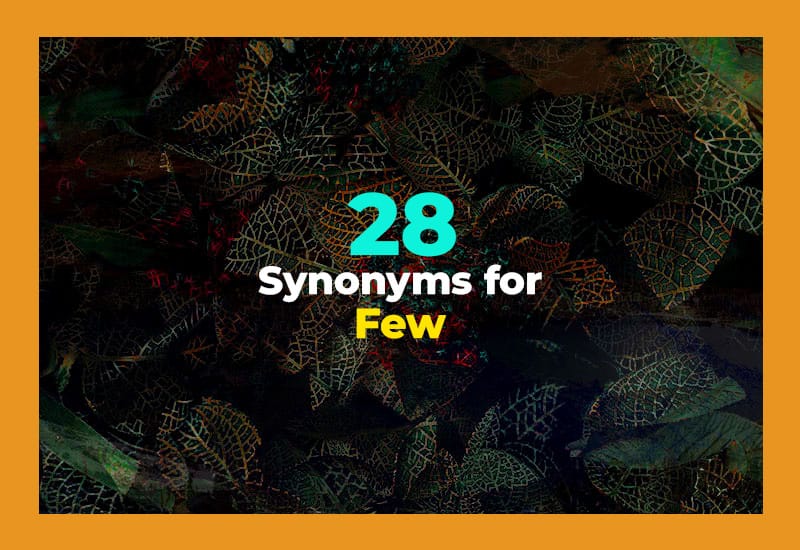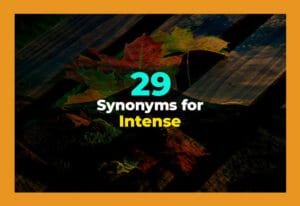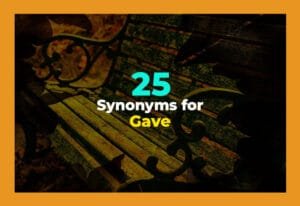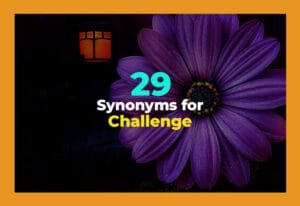You might find yourself wanting to spice up your language with a word other than “few.” Whether you’re writing, chatting, or just trying to sound a bit different, knowing some fresh alternatives is super helpful. From a handful of ideas to several choices, these words add flavor and clarity.
1. Some
The word some is commonly used to indicate an unspecified but small number of things or people. It's a casual and friendly term that fits perfectly into everyday conversation. For instance, you might say, “I have some apples left in the fridge,” which means you don't have many but there are more than one or two. It's less exact than “few,” but it still implies a modest amount. Using “some” keeps your language light and flexible, especially when you're unsure of the exact number but want to express that there are a few.
2. Several
Several refers to more than two but not a large number. It's a handy word when you want to describe a moderate, countable small amount. For example, “There are several books on the table” suggests more than just a couple but definitely not many. This word strikes a good balance between “few” and “many,” and it works well in both formal and informal settings. Using “several” helps clarify that the number is limited but more than just a tiny handful, making it useful for clear communication.
3. A handful
When you say a handful, you mean a small number that could literally fit in your hand. Figuratively, it refers to a manageable small group. For example, “I only brought a handful of candies” means you didn't bring many, just a small bunch. It's informal and friendly, adding a tactile feel to the idea of "few." This phrase gives a warm, personal touch to conversations or writing, making it easy for the listener to visualize the small amount you're talking about.
4. A small number
The phrase a small number is clear and precise, indicating a low quantity without being vague. For example, “A small number of students attended the lecture” tells us that attendance was low but more than just a couple. This phrase is a bit more formal, making it perfect for reports, presentations, or polite conversations. It conveys the message effectively, avoiding any confusion about how many you're referring to, while still keeping the tone neutral and respectful.
5. A couple
A couple literally means two but is often used to suggest a small number, usually two or three. For example, “I saw a couple of birds in the park” generally means just a few. This phrase is very casual and widely understood in everyday speech. When you want to keep things simple, friendly, and easy to understand, “a couple” is your perfect choice. It's often used when you want to express a very small number without needing to be exact.
6. A sprinkling
A sprinkling refers to a very small number scattered around, like sprinkling salt on food. For example, “There was a sprinkling of snow on the ground” means just a light dusting, not enough to cover everything. This word is poetic and vivid, ideal for descriptive writing or when you want to add a delicate or artistic touch. It helps create a gentle image of a few things spread out thinly in a natural way.
7. A smattering
A smattering describes a small, scattered number or amount, often used for knowledge or people. For example, “She has a smattering of French” means she knows a little bit but not much. It's charming and informal, often used in conversational or creative contexts. This synonym suggests a tiny but noticeable amount that's spread around, adding a playful or lighthearted feel when talking about few.
8. A scattering
A scattering refers to a small number of items spread out unevenly across an area. For example, “There was a scattering of leaves on the path” means the leaves were spread thinly but were only a few. This word creates a visual image, making it useful for nature descriptions or situations where things are not gathered in one spot. It helps paint a picture of "few" in a way that's easy to imagine.
9. A limited number
The phrase a limited number emphasizes that the quantity is small and restricted. For instance, “There is a limited number of tickets available” means only a small amount can be sold. It's often used in formal announcements or sales to indicate scarcity or exclusivity. This phrase adds a sense of urgency or caution, making clear that the amount is both small and precious.
10. Scant
Scant means barely enough or just a tiny bit less than expected. For example, “There was scant evidence to support the claim” means the evidence was very little and possibly insufficient. This word is formal and often found in serious or academic discussions. It communicates that the amount is small and potentially problematic due to its insufficiency.
11. Sparse
Sparse describes things that are thinly spread or exist in very small quantities. For example, “The vegetation in the desert is sparse” means plants are few and scattered. It often refers to physical things like populations or objects and suggests a lack of density or richness. “Sparse” is helpful in descriptive writing or scientific contexts to highlight how few things are in a particular space.
12. Minor
Minor means small in size, degree, or importance. For example, “There was minor damage to the car” means the damage wasn't serious or significant. It's a versatile word used to describe things that are small but noticeable. It can apply to injuries, problems, or amounts and is appropriate in both casual and formal language.
13. Meager
Meager suggests a very small or insufficient amount, often implying disappointment or lack. For example, “The meal was meager and left me hungry” means the food wasn't enough. This word carries a negative connotation and is used when you want to emphasize that the quantity is not only small but also inadequate or poor in quality.
14. Little
Little means not much in amount or size. For example, “There was little time left to finish the project” means very little time remained. It is a simple and common word used both in casual and formal situations. "Little" can describe amounts, importance, or degree, making it a highly flexible synonym for few.
15. Rare
Rare means uncommon or happening very infrequently. For example, “It's rare to see snow in this city” means snow happens very seldom. This word adds a sense of uniqueness or specialness to the small amount or occurrence. It's great when you want to express that something is not only few but also special or unusual.
16. Scarcely any
Scarcely any means almost none, emphasizing how very few things or people there are. For example, “There were scarcely any seats left at the concert” means only a tiny number of seats remained. This phrase is slightly dramatic and stresses scarcity or shortage. It's perfect for expressing urgency or disappointment about the small amount available.
17. Not many
Not many is a straightforward way to say there is a small number of something. For example, “Not many people came to the meeting” means attendance was low. It's clear, simple, and commonly used in everyday speech and writing. This phrase works well when you want to keep things direct without sounding too formal.
18. A bit
A bit means a small amount or degree of something. For example, “I'm a bit tired today” means you are slightly tired, not very tired. It's informal and friendly, often used in conversation to soften statements or add subtlety. “A bit” works well for quantities, feelings, or qualities, making it very useful in casual talk.
19. A touch
A touch means a small amount, often in a gentle or subtle way. For example, “The soup needs a touch of salt” means it needs just a tiny amount of salt. This phrase adds warmth and softness to the idea of "few," making it feel delicate or refined. It's great for food, emotions, or artistic expressions.
20. Trifling
Trifling means very small or unimportant. For example, “He made a trifling mistake” means the mistake wasn't serious or significant. This word is slightly formal and used to downplay the importance or size of something. Use “trifling” when you want to suggest that something is negligible or minor, often with a dismissive tone.
21. Insignificant
Insignificant means too small or unimportant to matter. For example, “The difference in prices was insignificant” means the change wasn't important or noticeable. This word fits well in formal or analytical writing when you want to highlight that the amount or effect is so small it doesn't really count.
22. Occasional
Occasional means happening now and then, not often or regularly. For example, “She makes occasional visits to the office” means she comes sometimes, but not on a regular basis. This word talks more about frequency than number but still implies few occurrences. It's useful for describing events or habits that happen infrequently.
23. Select
Select means carefully chosen and limited to a small group. For example, “Only a select few were invited to the party” means just a small, special group got invites. This word adds a sense of exclusivity and quality to the idea of "few." Use “select” when you want to imply that the small number is special or important.
24. Choice
Choice means the best or carefully picked. For example, “They picked choice ingredients for the recipe” means only the best and few ingredients were chosen. This word shows that a small amount can also be excellent or high quality. It's useful when quality matters more than quantity.
25. A minority
A minority means less than half of a group, a smaller segment within a larger whole. For example, “A minority of people disagreed with the plan” means fewer than half opposed it. It's a precise term often used in discussions, statistics, or social contexts to describe a smaller but significant portion or few.
26. Paltry
Paltry means very small or worthless in amount. For example, “He earned a paltry sum for his work” means the money was disappointingly low. This word is strong and negative, used when you want to show that the small number is not just few, but almost insulting in its lack.
27. Negligible
Negligible means so small it can be safely ignored. For example, “The error was negligible” means it was too small to affect the results. This word is common in technical or scientific writing and helps emphasize that the amount or effect is tiny and unimportant.
28. Petite
Petite means small and delicate, often referring to people or objects. For example, “She has a petite frame” means she has a small and slender body. This word adds charm and softness to the idea of smallness. It's often used to describe physical appearance or things that are attractively small.

Final Thoughts
Exploring synonyms for “few” helps you express ideas in more interesting and varied ways. Whether you want to sound casual, formal, poetic, or precise, there's a perfect word for every situation. Using these alternatives makes your speech and writing clearer, richer, and more engaging. Next time you want to say "few," try one of these words to add some flair and freshness. It's fun, easy, and sure to make your communication better.









